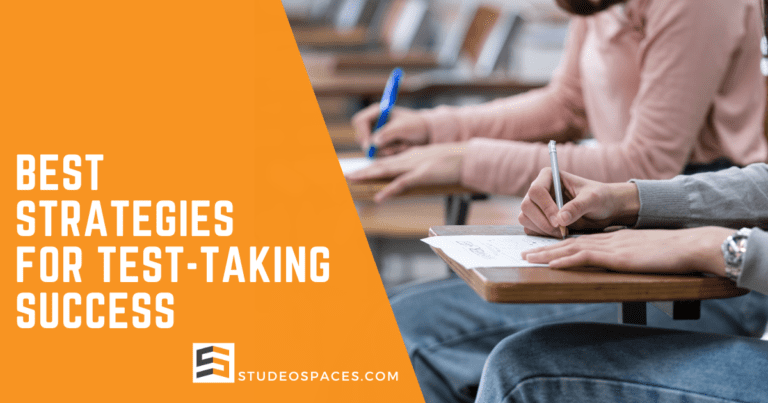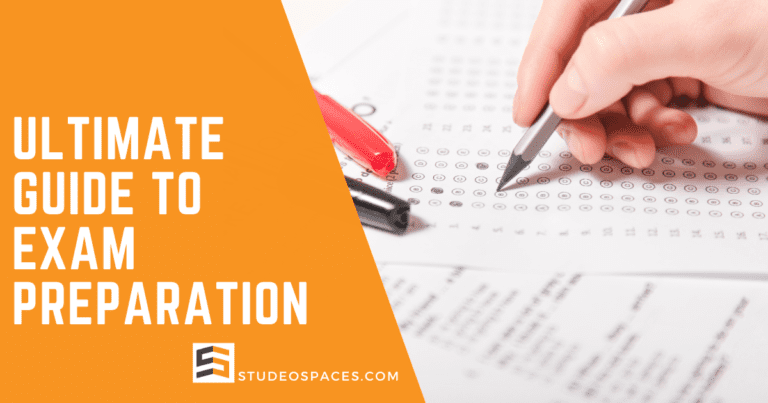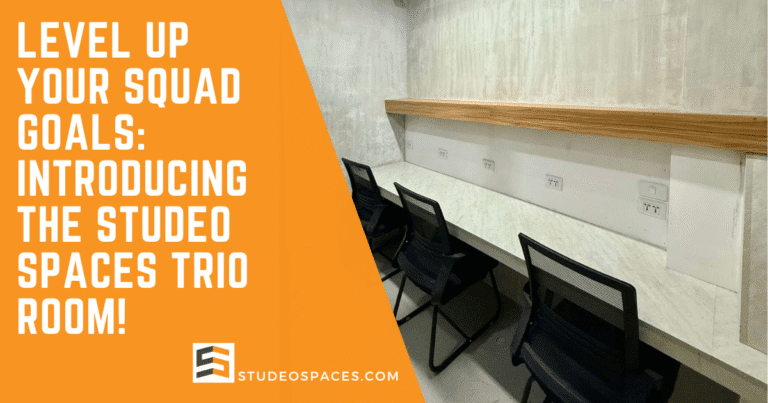
In the article “Top 10 Tips For Acing Your Exam,” students will discover practical strategies to boost their exam performance, from effective study techniques to mental preparation tips.
Preparing for exams can often feel overwhelming and stressful, but success is certainly within reach with the right strategies and mindset. This article explores the “Top 10 Tips for Acing Your Exam” to help you tackle your studies effectively and perform your best on exam day.
1. Develop a Study Schedule
A well-structured study schedule can be your best ally in combating exam anxiety and keeping your preparation on track. Creating a timetable outlining when and what you’ll study daily ensures you cover all necessary material without feeling rushed.

Benefits of a Study Schedule
A consistent study routine helps you build better study habits and allocate enough time for each subject, making your preparation more thorough. It also reduces last-minute cramming and helps you manage your time efficiently.
How to Create a Study Plan
- Assess Your Subjects: List all subjects and topics you must cover.
- Prioritize Topics: Identify subjects that need more focus and allocate more time to them.
- Set Realistic Goals: Break down your study material into manageable chunks and set daily or weekly goals.
- Incorporate Breaks: Schedule short breaks between study sessions to refresh your mind.
- Review Regularly: Include time for regular revision to reinforce your learning.
2. Understand the Exam Format
Knowing the structure of your exam helps you prepare more strategically. Different exams have different formats, such as multiple-choice questions, essays, or practical tasks.
Types of Exam Formats
- Multiple Choice: Focus on understanding key concepts and details.
- Essays: Develop strong writing skills, practice structuring arguments, and learn to manage your time.
- Practical Exams: Gain hands-on practice and focus on applying theoretical knowledge.
How to Prepare Based on Format
- Gather Information: Learn about the exam format from your syllabus or instructor.
- Practice Questions: Complete past exam papers or practice questions to get familiar with the format.
- Set Timers: Time yourself while practicing to improve your pace and efficiency.
3. Use Active Learning Techniques
Active learning is a powerful strategy for retaining information and understanding complex concepts. Engaging with the material interactively ensures that you grasp the content deeply.
Examples of Active Learning Techniques
- Summarizing: After reading a passage, summarize it in your own words.
- Teaching: Explain the concept to a peer or even to yourself.
- Mind Mapping: Create visual diagrams to connect ideas and concepts.
- Using Flashcards: Create flashcards for key terms and concepts and test yourself regularly.
Benefits of Active Learning
Active learning promotes better information retention, helps you grasp difficult concepts more easily, and makes studying more enjoyable and less monotonous.
4. Take Regular Breaks
Studying continuously without breaks can overload your brain and lead to burnout and decreased productivity. Regular breaks are essential for maintaining mental sharpness and keeping your motivation high.
Importance of Breaks
Taking short, frequent breaks helps rejuvenate your brain and improve concentration. Breaks prevent fatigue and allow your mind to process the information you’ve been studying.
Effective Break Strategies
- Pomodoro Technique: Study for 25 minutes, then take a 5-minute break. Repeat this cycle four times, then take a longer break.
- Physical Activity: Engage in light physical activities like stretching or walking.
- Mindfulness: Practice mindfulness or deep breathing exercises to relax your mind.

5. Practice Past Test Papers and Examinations
Practicing past exam papers is one of the best ways to prepare for your exams. It helps you familiarize yourself with the question patterns and time constraints, reducing exam-day stress.
Advantages of Past Papers
Past papers provide insights into the questions that might appear in the exam. They also help you identify areas where you need more practice and improve your time management skills.
How to Use Past Papers Effectively
- Simulate Exam Conditions: Complete past papers under exam-like conditions for a realistic experience.
- Analyze Your Performance: Review your answers, note mistakes, and understand the areas you need to improve.
- Track Progress: Regularly track your performance to see how you improve over time.
6. Join Study Groups
Study groups can offer valuable support and enhanced learning experiences. Discussing topics with peers can deepen your understanding and uncover new perspectives.
Benefits of Study Groups
- Collaboration: Sharing knowledge and resources can help fill gaps in your understanding.
- Motivation: Studying with others can keep you motivated and accountable.
- Clarification: Peers can help clarify doubts and explain concepts in different ways.

Tips for Effective Study Groups
- Set Goals: Clearly define the purpose and goals for each study session.
- Stay Focused: Avoid distractions and stay on topic.
- Rotate Roles: Rotate roles such as moderator, note-taker, and questioner to keep the sessions dynamic.
7. Prioritize Your Health
Taking care of your physical and mental health is crucial for effective studying. A healthy body and mind are essential for maintaining focus and productivity.
Key Health Tips
- Diet: Eat balanced meals rich in nutrients to fuel your brain.
- Sleep: Ensure you get 7–9 hours each night for optimal cognitive function.
- Exercise: Regular physical activity boosts mood and energy levels.
- Hydration: Drink plenty of water to stay hydrated.
Incorporating Health into Your Routine
- Set a Sleep Schedule: Maintain a regular sleep schedule to ensure restorative sleep.
- Plan Meals: Prepare healthy snacks and meals that can be quickly consumed.
- Stay Active: Incorporate short exercise routines or walks into your day.
8. Manage Stress and Anxiety
Exam preparation often involves stress and anxiety. Learning to manage these feelings can significantly improve exam performance and overall well-being.
Stress-Relief Techniques
- Mindfulness Meditation: Focus on the present moment and practice deep breathing exercises.
- Time Management: Break tasks into smaller steps to make them more manageable.
- Positive Affirmations: Use positive statements to boost your confidence and stay motivated.

When to Seek Help
If stress or anxiety becomes overwhelming, it’s important to seek support. Talk to a counselor, teacher, or trusted friend to discuss your concerns and explore coping strategies.
9. Use Resources Wisely
Leveraging available resources can greatly enhance your study efficiency. From textbooks to online courses, the right resources can provide you with a deeper understanding and more effective study strategies.
Types of Resources
- Textbooks and Guides: Core reading materials that provide in-depth knowledge.
- Online Courses: Interactive courses that offer video lectures, quizzes, and assignments.
- Study Apps: Tools that help with organization, flashcards, and practice questions.
How to Choose the Right Resources
- Identify Your Needs: Determine what areas you need help with.
- Evaluate Credibility: Use reputable sources and check for the credibility of online materials.
- Utilize Libraries and Study Hubs: Use libraries and dedicated study spaces like Studeo Spaces Study Hub.
10. Study in an Ideal Environment
Finding the right study environment can significantly improve your focus and productivity. An ideal environment minimizes distractions and promotes sustained concentration.
Features of an Ideal Study Environment
- Quietness: A quiet place free from distractions and interruptions.
- Comfort: Ergonomic seating and proper lighting to avoid discomfort or strain.
- Organization: A clutter-free space with all necessary materials within reach.
Why Studeo Spaces Study Hub is Perfect for Exam Prep
At Studeo Spaces Study Hub, we believe in creating a space that fosters a state of hyper-productivity and concentration known as the “Flow State.” Located in Sampaloc, our premier destination is designed specifically to help individuals unleash their focus and unlock their full potential.
Our mission at Studeo Spaces Study Hub is to provide a supportive environment where students and professionals can escape distractions and elevate their studies or work. We understand the importance of creating a space that promotes peak performance and productivity.
Unlike traditional co-working spaces, Studeo Spaces Study Hub is meticulously designed to cater to those seeking an optimal atmosphere for studying or working. Our goal is to help individuals achieve their goals and reach a state of flow where they can immerse themselves fully in their tasks.
Our tagline, “Get Into the Flow,” encapsulates our commitment to helping individuals achieve a state of hyper-focus and productivity. Whether preparing for exams or looking to enhance your professional performance, Studeo Spaces Study Hub provides the perfect environment for you to thrive.
Studeo Spaces is open every day, seven days a week, including weekends, holidays, and inclement weather. We never close for private events since we don’t host them.
Access can be as short as 16 hours daily, from 8:00 AM to 12:00 MN (extendable to 6:00 AM at the Glassbox NightShift for just an additional P100.00). You can go out and come in as frequently as you need to. Studeo Spaces is located at the corner of Dapitan and Dela Fuente Streets, Sampaloc, Manila (7-11 on the ground floor). Google Maps/Waze/Grab Pins: Studeo Spaces.
Conclusion
Acing your exams is achievable with the right approach and mindset. You can maximize your preparation and performance by developing a structured study schedule, understanding the exam format, engaging in active learning, and taking advantage of resources like Studeo Spaces Study Hub. Remember, the key to success is consistency, focus, and taking care of your well-being. Good luck, and happy studying!
Please check out the Studeo Spaces Study Hub Official Website and follow the Studeo Spaces Study Hub Facebook Page and Studeo Spaces Study Hub TikTok Channel for announcements, news, and updates.
Studeo Spaces Quick Links
- Book a Desk / Room
- Location
- Rates
- Features and Amenities
- Business Hours
- Private Rooms
- Latest News
Stay Connected
- Facebook: https://www.facebook.com/StudeoSpaces
- Tiktok: https://www.tiktok.com/@studeospaces
- Youtube: https://www.youtube.com/@StudeoSpaces










